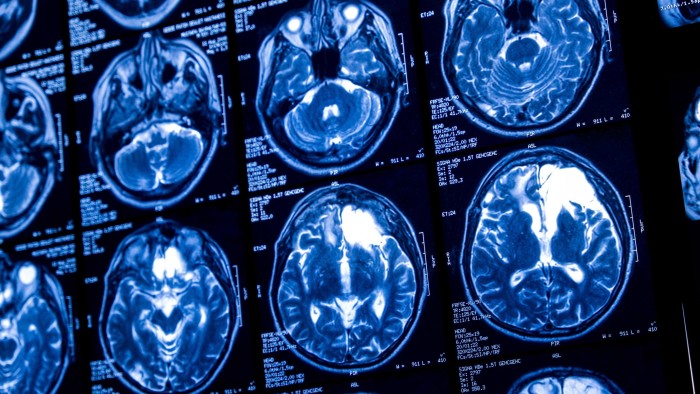Unlock the Editor’s Digest for free
Roula Khalaf, Editor of the FT, selects her favourite stories in this weekly newsletter.
A German biotech company has reported encouraging clinical trial results for an antidepressant paired with a genetic test that identifies patients most likely to benefit from the drug.
Hans Eriksson, chief medical officer of Munich-based HMNC Brain Health, called the study of its BH-200 drug in 338 patients with serious depression “a major step forward in precision psychiatry”.
Participants were divided into three groups according to the genetic profile of hormones produced in their brain in response to stress. Although treatment with BH-200 improved everyone’s symptoms, one group — accounting for 27 per cent of patients — benefited significantly more than the others.
HMNC had raised €66.5mn from private investors and expected to raise a further €80mn to put BH-200 and associated “companion diagnostic” genetic tests through to the next stage, a Phase 3 clinical trial, Eriksson said.
Alan Schatzberg, professor of psychiatry at Stanford University and a scientific adviser to HMNC, said the BH-200 trial results “could represent a paradigm shift towards more biologically informed treatment decisions in psychiatry”.
BH-200 is a reformulation of nelivaptan, an antidepressant originally developed by Sanofi and discontinued in 2008 at a time when big pharmaceutical companies were abandoning the psychiatric medicine market.
 Hans Eriksson, chief medical officer of HMNC Brain Health, said the company had raised €66.5mn from private investors and expected to raise a further €80mn to put BH-200 through to a Phase 3 clinical trial © HMNC Brain Health
Hans Eriksson, chief medical officer of HMNC Brain Health, said the company had raised €66.5mn from private investors and expected to raise a further €80mn to put BH-200 through to a Phase 3 clinical trial © HMNC Brain Health
HMNC has a separate programme in collaboration with Californian biotech Spruce Biosciences to commercialise another antidepressant called tildacerfont, originally developed by Eli Lilly. As with BH-200, companion diagnostics will direct the drug to patients whose genes suggest they are most likely to respond well.
Eriksson said there would inevitably be an additional cost incurred in giving patients a one-off genetic test before prescribing an antidepressant, but it would be small compared with the cost of treatment and benefits of receiving the drugs best suited to them.
“Our test is currently based on a blood draw, which is something already incorporated into clinical practice,” he said. “We are looking into developing it into a saliva test that could perhaps be delivered to the patient at home and sent for analysis before the visit to the clinician’s office.”
HMNC is part of a new wave of biotech companies revitalising research into depression and psychiatric medicine following the widely criticised withdrawal of the established pharmaceutical companies from the field.
“Some of their medications landed in small start-ups where we do things somewhat differently,” said Eriksson. “My guess is that big pharma will renew its interest.”

